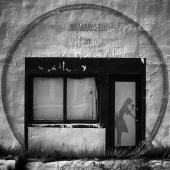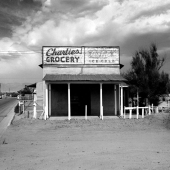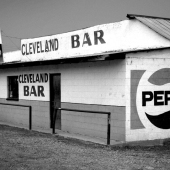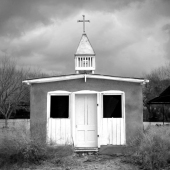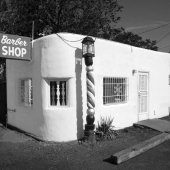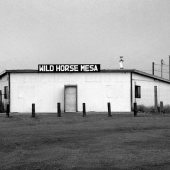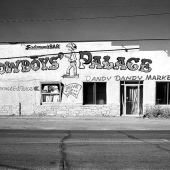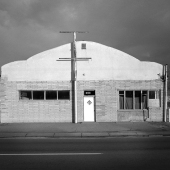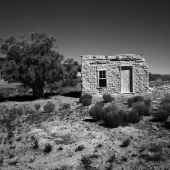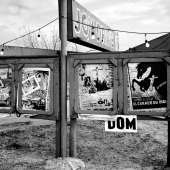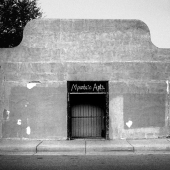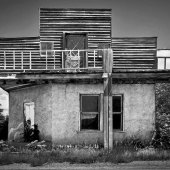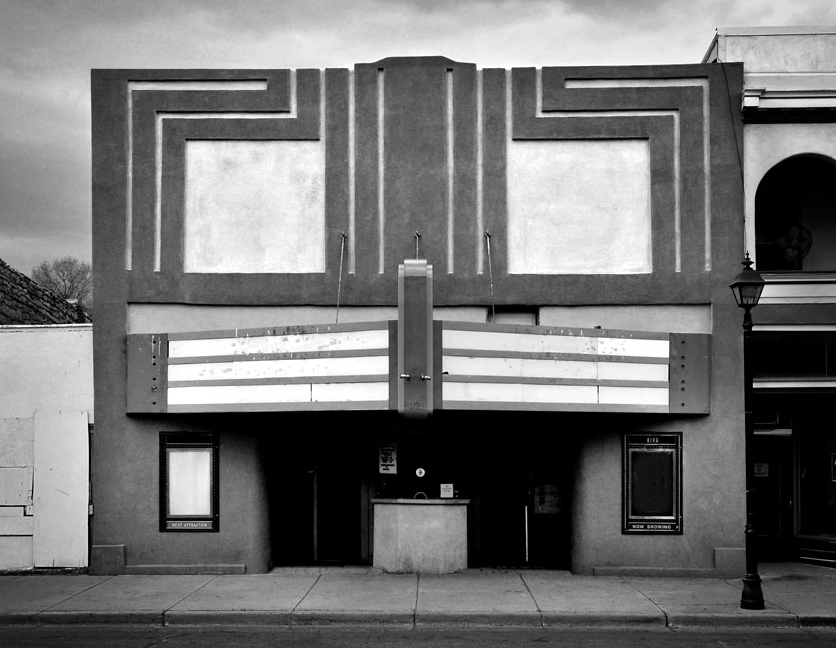
I’ve just discovered the work of Robert Christensen. From his website:
VERNACULAR ARCHITECTURE OF NEW MEXICO: PHOTOGRAPHS BY ROBERT CHRISTENSEN 1973 – 2013
EXHIBITION AT THE ALBUQUERQUE MUSEUM OF ART AND HISTORY: September 21, 2013 – March 16, 2014
In 52 stunning black-and-white photographs, Belen-based photographer Robert Christensen has documented, in a spare compositional format, home-spun, down-to-earth buildings such as gas stations, garages, barns, bars, and shops, which he calls the we-don’t-need-no-stinking-blueprints school of structural design. The artist states, “I see these images as portraits of unassuming, idiosyncratic individuals, rather than pure historical documentation. While quite a few of these buildings still stand, as a genus they are fading away, along with the individualism and self-reliance that produced them. Some have been replaced by mundane new construction, some have been chicly remodeled at the expense of their original allure, and some have just vanished.”
Over the past four decades Christensen has traveled to all corners of New Mexico and neighboring borderlands looking for interesting buildings along the way. The list of locations of structures captured by the artist inspires the imagination. . . .Towns such as Vado, Dexter, Vaughn, Midway, Acme, La Joya, Cleveland, and Canutillo all evoke places of forgotten legend or the mythical long ago.
The photo at the top is the Kiva Theatre in Las Vegas, New Mexico, which Christensen shot in 2009 but it could have been 1949. Have a look at a few more of his photos in the gallery below — and then go to his website to view more. His work is not only stunning, it’s a gift — intimate little worlds discovered in landscapes that can, in life, feel parched, empty and forgotten. Christensen has made me see and experience those landscapes differently.
What I appreciate most is how these photos have accrued over decades of seeing — it’s a rich visual history that would have remained invisible to and unknown by a larger world if Christensen hadn’t documented it.
